Most economical vans 2025
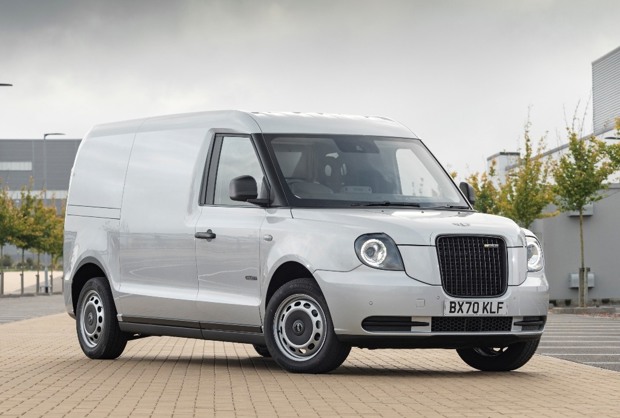
Vans tend to cover much larger overall mileages than cars meaning diesel-engined models are still very popular. Electric vans are all well and good but when they are in constant use or have to cover big miles, they don’t yet suit everyone.
The good news, though, is that there are loads of vans on the market with diesel or petrol engines, plus others with hybrid systems. They all meet the latest emissions legislation but also offer great fuel economy.
Here are the most economical vans that you can buy:
Most economical vans |
LEVC VN5
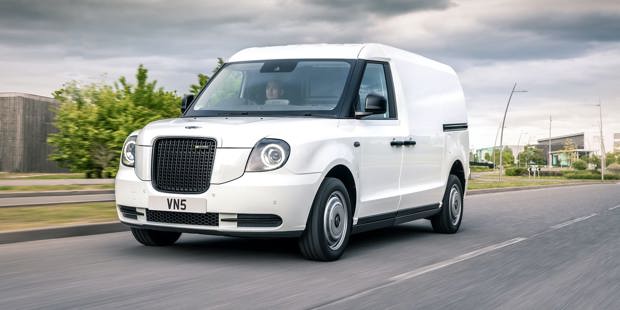
The LEVC VN5 is a quirky alternative to a diesel and if you think it looks a bit like a London Taxi, that’s because it is, albeit with a panel van rear end. It’s a range-extender electric van being driven by an electric motor supplied by a 34.6kWh battery pack. In addition to being plugged in to recharge, the VN5’s 1.5-litre petrol engine’s role is an on-board generator — this extends the range from an electric-only 73.4 miles to 308.4 miles on the Combined WLTP cycle, equating to an overall average of 382.8mpg.
Toyota Corolla Commercial
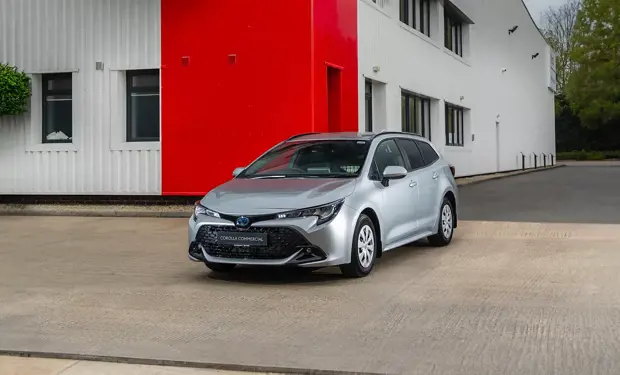
The car-derived Toyota Corolla Commercial does up to 61.4mpg on the WLTP Combined cycle, with a hybrid petrol-electric system shared the Toyota Corolla Touring Sports estate upon which it is based. It’s efficient, comfortable and has far nimbler handling than purpose-designed vans.
Mercedes Citan
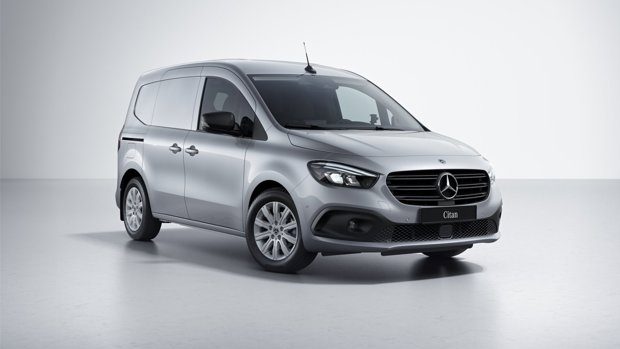
With its 1.5-litre diesel engine and bodywork shared with the Renault Kangoo, the Mercedes Citan is a smart small van that will project an upmarket image for your business while still saving you money. Based upon WLTP Combined cycle figures it can in theory deliver up to 55.4mpg, depending on the version, equating to a driving range of over 600 miles.
Citroen Berlingo
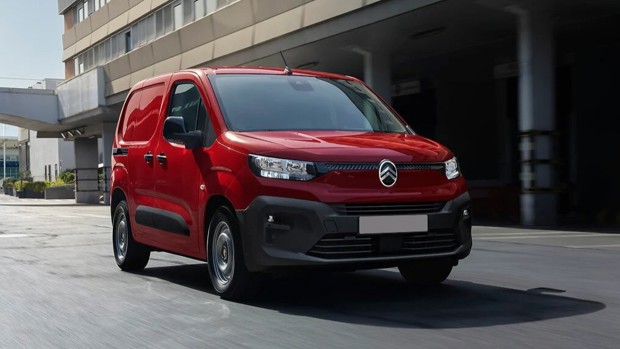
The Citroen Berlingo 1.5-litre BlueHDi diesel is impressively frugal, as are its sister vans, among them the Fiat Doblo and Vauxhall Combo. All can achieve up to 54.4mpg, except the Toyota Proace City which is slightly lower at 52.3mpg on the WLTP Combined cycle. Citroen offers an addition choice by also being sold in petrol form, where it can serve up to 44.7mpg.
Renault Kangoo
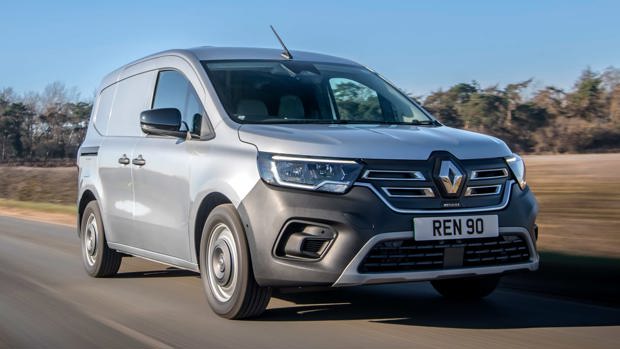
The Renault Kangoo has the same 1.5-litre Blue dCi diesel engine as the Mercedes Citan in two different power outputs. In long wheelbase crew cab form it has a claimed WLTP Combined economy of 48.7mpg, extending to 54.3 mpg as a short wheelbase panel van. It’s fun and car-like to drive, plus there’s a petrol engine delivering a claimed 40.9mpg for those who don’t need a diesel.
Ford Transit Courier
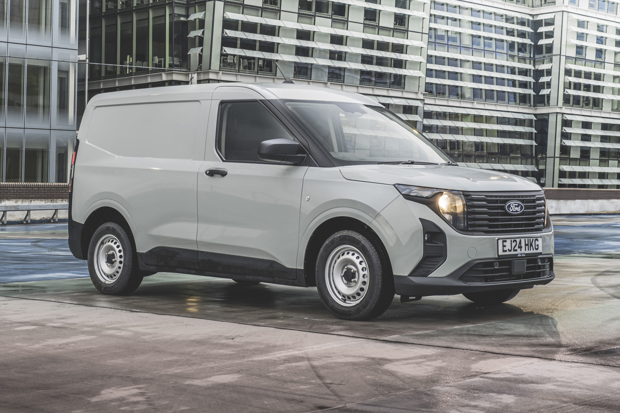
You get a choice of petrol or diesel engines with the compact Ford Transit Courier and the great news is that both are frugal. Plump for petrol and the 100PS 1.0-litre Ecoboost will return up to 43.4mpg according to the WLTP Combined cycle. Opting for the 1.5-litre Ecoblue diesel ups that claim to 54.3mpg.
Volkswagen Caddy Cargo
.jpg?width=620)
Although it shares a lot of its architecture, bodywork and interior with the Ford Transit Connect, the Volkswagen Caddy Cargo is slightly more economical. It still puts in a good account of itself though, with up to 52.3mpg on the WLTP Combined cycle from its established, reliable and well-respected TDI diesel engines.
Ford Transit Connect
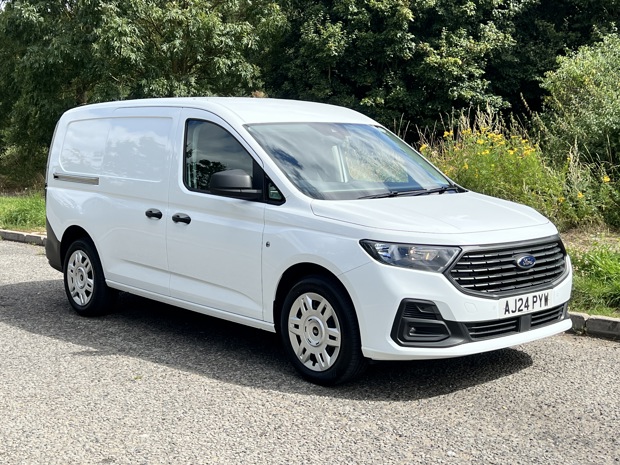
The latest generation of the Ford Transit Connect went on sale in 2022 with its diesel engine capable of up to 52.1mpg on the WLTP Combined cycle, or up to 50.5mpg with the eight-speed automatic option. The latter is particularly noteworthy as it’s one of the most frugal automatic vans you can buy. It’s also stylish and great to drive.
Vauxhall Vivaro

In 120PS diesel form, the latest Vauxhall Vivaro will do up to 44.8mpg according to the WLTP Combined cycle, which is pretty impressive for a mid-size model. Its sister vans, include the Citroen Dispatch, along with the Fiat Scudo and the Peugeot Expert which are equally efficient, although the Toyota Proace’s 42.2mpg figure is slightly inferior. What Vauxhall is also able to offer is a wider choice of models and bigger dealer network.
Fiat Ducato
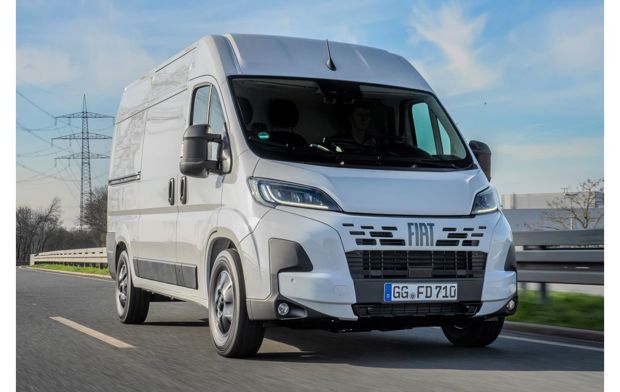
Under the bonnet of the latest Fiat Ducato is a 2.2-litre 140PS diesel engine that offers up to 44.0mpg on the WLTP Combined cycle — impressive for such a large van. The same engine and efficiency is also found in the Citroen Relay, along with the Peugeot Boxer and Vauxhall Movano, although be aware that the Toyota Proace Max-badged version’s quoted economy is lower at 35.3mpg.
When does a diesel or petrol van make more sense than an electric one?
Every case is individual but given that most electric vans have a range of 200-300 miles then if you regularly cover this kind of mileage in a day, a diesel van is certainly easier to own. You also need to think about charging options — if you don’t have a home or workplace charger, then diesel or hybrid vans are likely to still make the most sense for now, at least.
Will I face an emissions penalty by sticking with diesel?
Nobody knows what future taxation may look like but with the majority of vans on the road being diesel it’s unlikely that they will be banned or taxed off the road, as natural attrition will see buyers moving towards more efficient models anyway.
Will I still be able to buy a new diesel or petrol van after 2030?
No, not unless it’s a hybrid with an as-yet-undefined level of electric-only driving range available. Fear not though as diesel and petrol fuel will not be outlawed, nor will driving, owning, selling or buying vans registered before the 2030 ban comes into effect.
